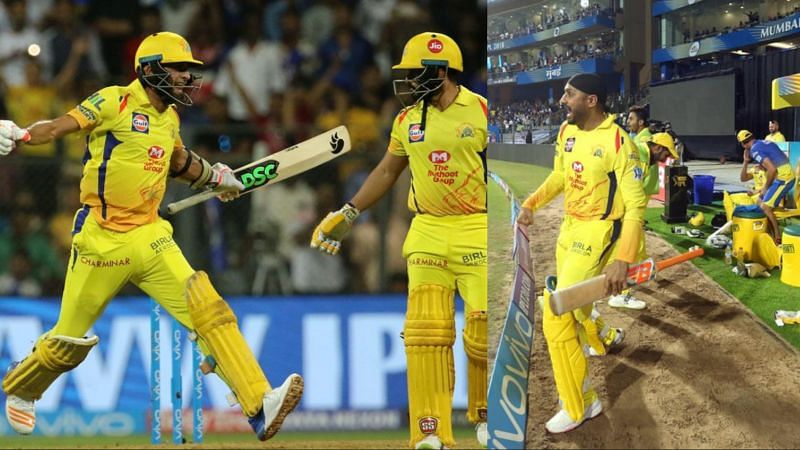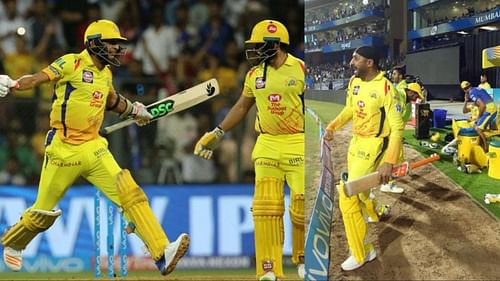
IPL 2021: 3 times an IPL team won a match by 1 wicket in tournament history

The Indian Premier League (IPL) is one of the most closely contested cricket competitions on earth.
Very few tournaments are as competitive as the IPL. One of the main reasons why the competition level is so high in the IPL is that the best cricketers from across the globe participate in this annual tournament.
Last year, fans witnessed the first-ever double Super Over in an IPL match between the Mumbai Indians and the Punjab Kings. Before that, fans had seen many teams recording a one-run win in the IPL matches.
Like the teams defending a total, the ones chasing have also shown the 'never-say-die' approach in the tournament's history. When a team is nine wickets down, the bowling team generally has the upper hand.
But in this article today, we will look at the three instances when the IPL teams did not give up and emerged victorious by one wicket.
1. Punjab Kings vs. Kolkata Knight Riders, IPL 2015
Fans witnessed the first-ever one-run win in the IPL during the inaugural season itself, but had to wait seven years to see a team win a game with one wicket in hand. The Kolkata Knight Riders were the first franchise to accomplish that feat.
Playing against the Punjab Kings at home, KKR chased a 184-run target with nine wickets down.
The visitors won the toss and batted first. Glenn Maxwell's 23-ball 42 placed Punjab in a decent position, but Sunil Narine's four-wicket haul helped KKR restrict the visiting team to 183/5 in 20 overs.
Chasing 184 to win, KKR got off to a good start. Contributions from top-order batters and a fifty from Andre Russell guided KKR closer to the target.
Punjab bounced back and brought the equation down to eight from six. KKR had three wickets in hand, but Brad Hogg got run out on the second ball.
Piyush Chawla smashed the third ball bowled by Anureet Singh for a maximum but lost his wicket on the next delivery.
KKR needed one to win when Sunil Narine joined Umesh Yadav. The fifth ball hit Narine's pads, and the two tail-enders quickly stole a leg-bye to guide KKR home.
2. Mumbai Indians vs. Chennai Super Kings, IPL 2018
Chennai Super Kings returned to the IPL in 2018 after a temporary suspension. They faced Mumbai Indians in the first match and conceded 165 runs in the first innings.
Unfortunately, CSK's top-order batters could not fire as they were down to 118/8 after 16.3 overs. All-rounder Dwayne Bravo then played an incredible knock of 68 runs to turn the game upside down.
The Caribbean star hit three fours and seven sixes in his 30-ball innings. However, he lost his wicket in the penultimate over.
An injured Kedar Jadhav, who had retired hurt earlier in the innings, came out to bat with CSK needing seven runs from the last over. Jadhav played three dot balls before hitting a six and a four off Mustafizur Rahman's bowling to give CSK a memorable one-wicket win.
Check out who scored the lowest score in IPL history here.
3. Mumbai Indians vs. Sunrisers Hyderabad, IPL 2018
Mumbai Indians suffered another one-wicket defeat later in the same season. Playing against Sunrisers Hyderabad away from home, the Mumbai-based franchise posted a 147-run total in the first innings.
Chasing 148, the home side were down to 137/9 despite a 62-run opening partnership. Mayank Markande scalped four wickets for MI, while Mustafizur Rahman dismissed three SRH batters.
It seemed like MI would pull off a win, but Deepak Hooda and Billy Stanlake had other plans.
Ben Cutting had 11 runs to defend against Hooda and Stanlake in the final over. Hooda smashed a six off the first ball, but SRH was able to score only four runs off the next four deliveries.
Tail-ender Billy Stanlake faced the last ball with one run to get. The Aussie bowler hit the ball over the 30 yards circle, and it traveled to the boundary line as SRH recorded a one-wicket victory.
Fans at the Rajiv Gandhi International Stadium went berserk after the Orange Army won the match off the last ball. It will be interesting to see if there are any new additions to this list in Phase 2 of IPL 2021.